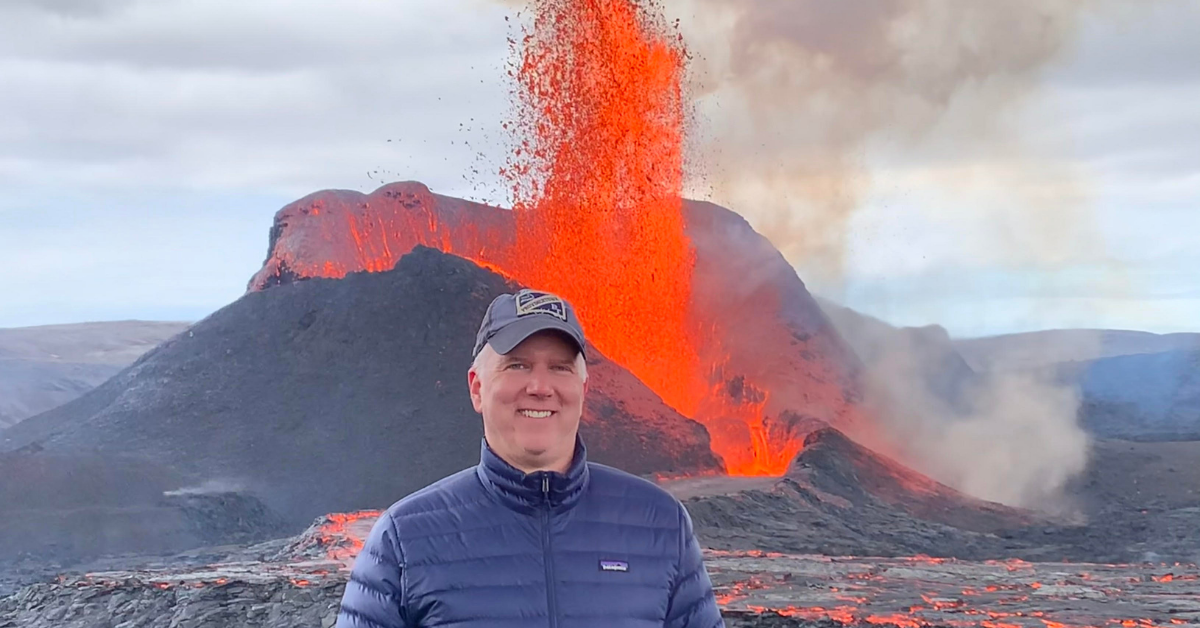
Travel, whether domestic or international, is now much easier and more accessible for COVID-19 vaccinated individuals. Globe-trotting physician Dr. Carl Hughes has been dusting off his passport and planning his next vacation after a pandemic hiatus.
With over 50 countries under his belt, Dr. Hughes, an internal medicine specialist at Tryon Medical Partners, spent the last year sharing domestic travel suggestions with his patients, like road trips and camping. But, just recently, he pulled out his luggage and headed to Iceland.
For other fully vaccinated folks feeling the urge for wanderlust, Dr. Hughes shares his pre-travel checklist for stress-free vacations.
1. Research Your Destination’s Policies
Check your locale for any requirements for fully vaccinated travelers. Though it is no longer necessary domestically, some international locations require a negative coronavirus test or a period of quarantine. Visit the State Department website to understand these requirements and be aware of your destination’s COVID-19 infection rate.
2. Pack Your Vaccine Card with Your Passport
Alongside your driver’s license, flight plans and accommodation information, make sure your vaccination card is part of your travel documents.
“I plan to keep my vaccination card with my passport and snap a picture to keep on my phone while traveling,” Dr. Hughes says.
3. Be Prepared to Follow Masking Guidelines
The CDC’s most recent guidelines lift recommendations to wear masks and stay socially distant for vaccinated people, but these do not apply in certain situations like inside healthcare facilities or during transit. Individual businesses may also have their own policies on masking and distancing.
4. Opt for Carry-On Luggage if Flying
Be prepared for busy airports and full flights. Consider a carry-on to reduce your chances of being in contact with others while waiting around a crowded luggage carousel.
“I always pack a carry-on suitcase no matter where I go,” Dr. Hughes says. “If you have your bag with you, you’re going to minimize the amount of time you spend waiting at baggage claim and have a better sense of where it’s been and who has touched it.”
5. Pack PPE and Refreshments
Remember to travel with face masks, disinfectant wipes and sanitizer. If you’re flying, consider a quick wipe down of your airplane seat, headrest, tray table and armrests.
Pack your own snacks in case they aren’t available onboard. Airlines have been changing their food and drink policies throughout the pandemic so it’s best to plan ahead.
6. Consider Your Accommodations
Hotels and motels are common travel accommodations but, by design, you’re in close proximity to others. Consider a rental property with a private entrance. You can even choose accommodations that allow self-check-in, completely bypassing the need to be in close quarters with people outside your family.
7. Prepare for COVID-19 Testing Before, and Potentially After, Travel
Depending on your destination, you may need to show proof of a negative coronavirus test even when vaccinated. For domestic travel within the U.S., fully vaccinated travelers do not need a coronavirus test before or after trips. When returning to the U.S. all passengers two years of age or older must test negative for COVID-19. When traveling, the process of getting a rapid antigen or PCR coronavirus test will vary widely, whether you are finding one in the United States or scheduling one abroad.
8. Hit the Road With Unvaccinated Kids
Recently, COVID-19 vaccines were approved for children as young as 12. Unvaccinated children are still at risk for catching the virus during travel and household transmission is known to occur even in people who have been fully vaccinated. If you have children that have yet to be vaccinated, opt for a vacation closer to home.
“I would recommend domestic travel for families with unvaccinated children because you can choose how close you want to be to others,” Dr. Hughes says. “It can be less stressful to visit a state park, hit the beach or go camping.”
After months of plans being put on hold, the opportunity to travel again is exciting, but it’s important to remain aware and informed. Follow Dr. Hughes’ pre-travel checklist to plan a smooth and enjoyable trip, but never hesitate to reach out to your trusted primary care physician with any concerns. Scheduling your annual wellness check before travel is a great way to get all your questions answered and feel confident and prepared for your trip.
“Travel is different now with more regulations,” Dr. Hughes says. “People should expect delays, remember to be kind and practice patience.”

